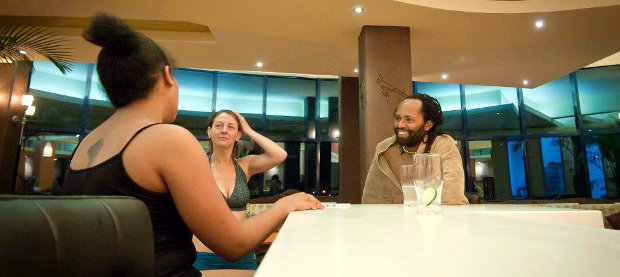Kenya is ready for new things, say founders of Nairobi yoga studio
The emergence of a sophisticated, educated, well-travelled and a health conscious middle class is inspiring growth in the Kenyan health and wellness industry. Emma Day, a British lawyer, and Karim Nathoo, an IT business analyst, quit their careers in Canada and moved to Kenya to open the country’s first Bikram yoga studio. Bikram yoga is practiced in a room heated to 40°C. The two founders told How we made it in Africa’s Dinfin Mulupi about their experience running the business in Kenya.
What inspired you to start the Bikram yoga studio in Kenya?
Karim: Kenya is ready and ripe for many new things. If you bring something new and interesting that adds value to people’s lives, they will come for it. Kenyans are not closed minded; they are always looking for opportunities to experience new things. I knew it would work. We sold more than 120 introductory memberships before we actually opened the studio. It took us a few hundred dollars to set up the studio and so far the business is doing well. We have about 120 students that come in every day. We bring the yoga instructors from abroad because there are no Kenyans yet who have trained as instructors.
Describe your target market.
Karim: We target both the young and old, professionals as well as wealthy housewives. We have very high fixed costs at the end of the month so our prices are a bit discriminatory. We mostly get customers from the middle and upper-class.
Emma: Some people have travelled across the world and experienced Bikram yoga before so they know what it is and its benefits. For a lot of women, they come in for weight loss then they realise it actually makes them healthy, their hair starts to grow and their digestion works properly. People have different motivations for doing Bikram yoga.
Explain some of the hurdles you faced in establishing the business.
Emma: There is a challenge in marketing because most people are not familiar with the Bikram yoga concept. Any type of yoga is new to most people here and we have to constantly explain what it is and what it is not. There are some pre-conceived ideas in Kenya about what yoga is; people think it is religious. This is false. Also, we had not done business in Kenya before. We found it difficult to build the studio and deal with professionals around that area.
Karim: We found that people here easily commit verbally and in writing to do something then they fail to do it. Learning to do business in Kenya was learning to manage my own expectations of what I would get and learning to apply the pressure and build consequences for commitments not being met. On the other hand, Kenya has very talented people. If you have the standards and you are prepared to be disappointed a few times you will get talented people.
What advice would you give other entrepreneurs?
Karim: A lot of businesses in Kenya are investments and you feel the lack of the owner’s involvement in it. I think it is important to do what you love and be present there. We are always engaged in the business and how to improve it.
Emma: If you are bringing something new to a market, you have to understand that some of the people working for you have never been exposed to what you are trying to reproduce. You have to have patience and don’t expect people to immediately get what you are trying to do.
Your future plans for the business?
Karim: As our student base grows we will add more classes so that people have a wider choice of times to come and do their yoga. We plan to expand locations as demand grows. Because of the costs, you need a lot of customers to recoup investments.


